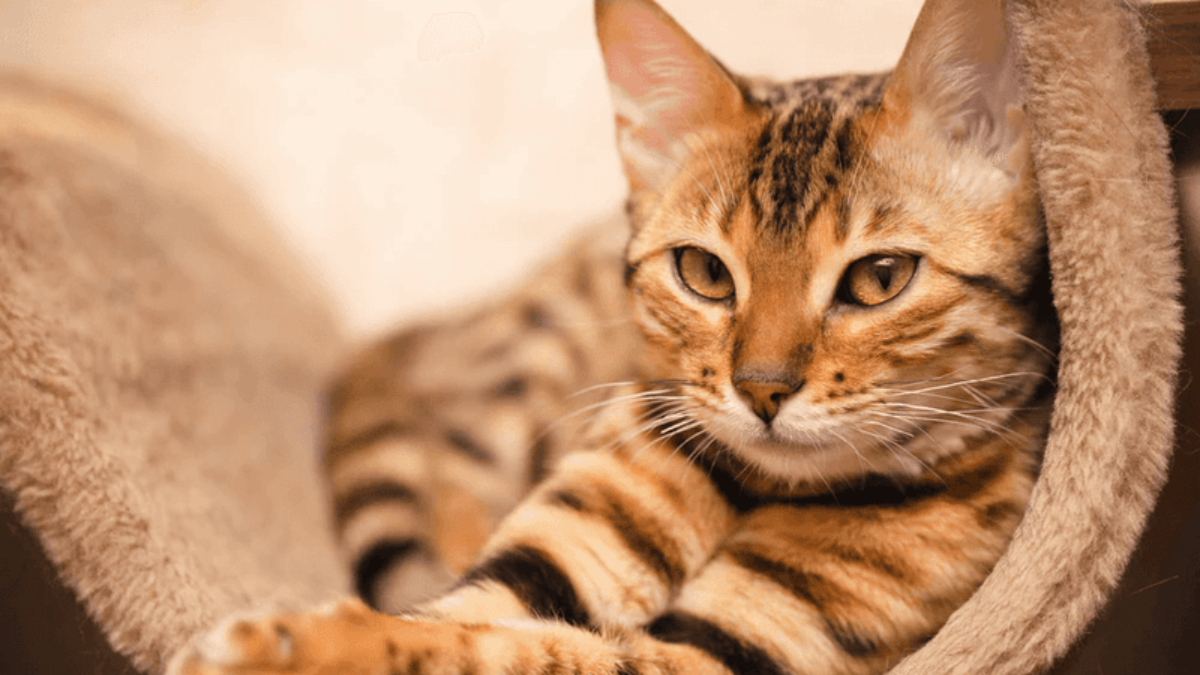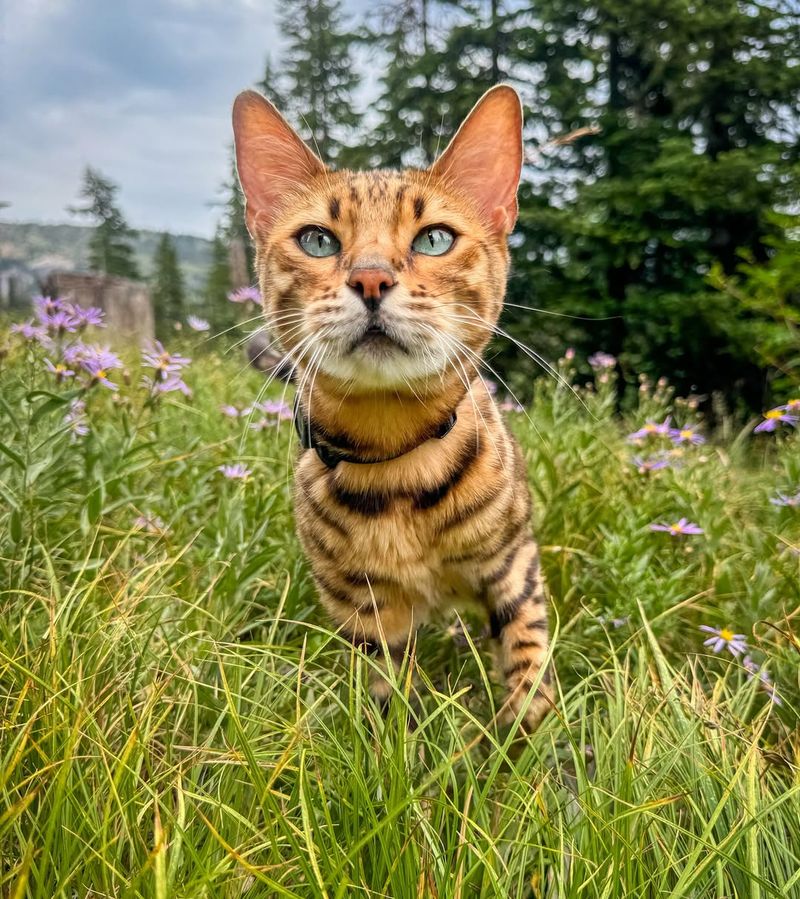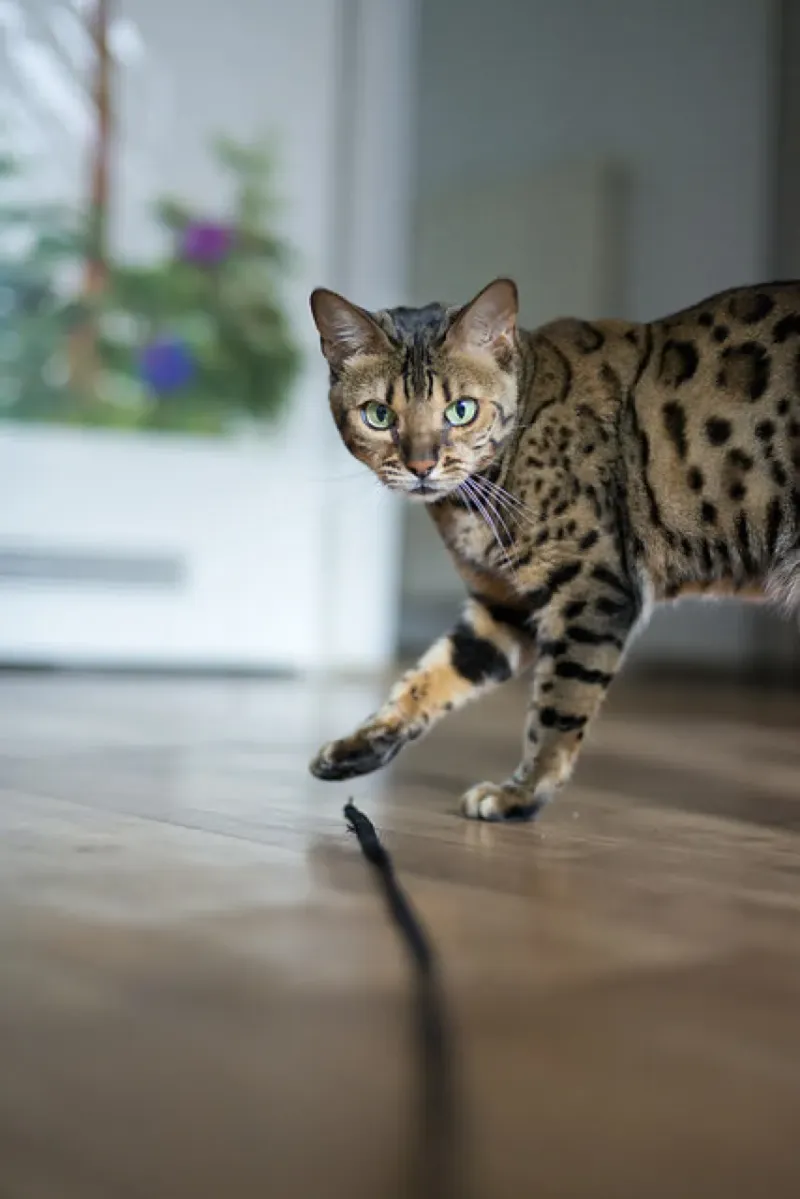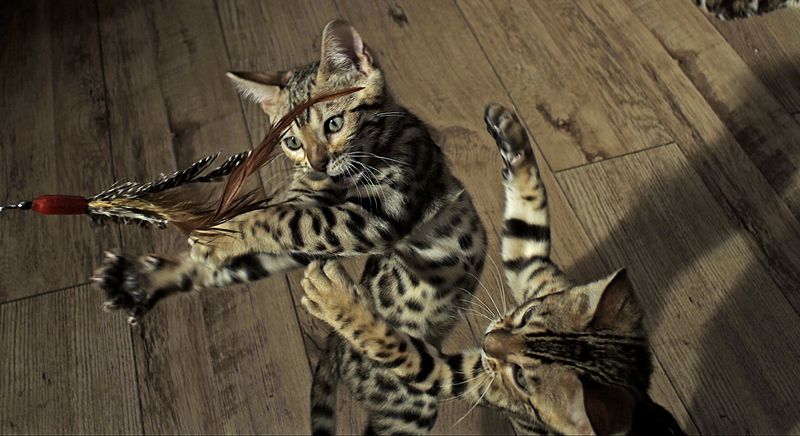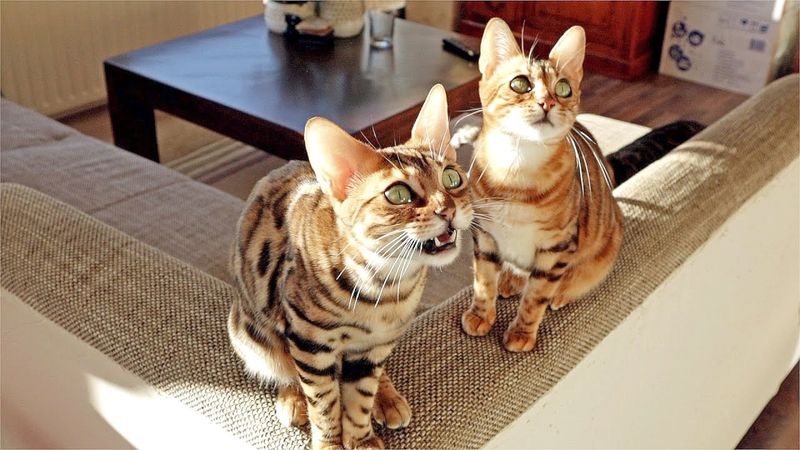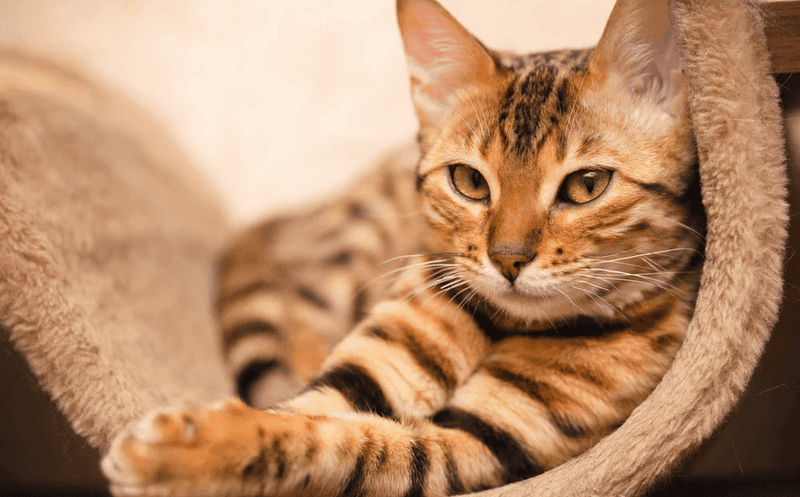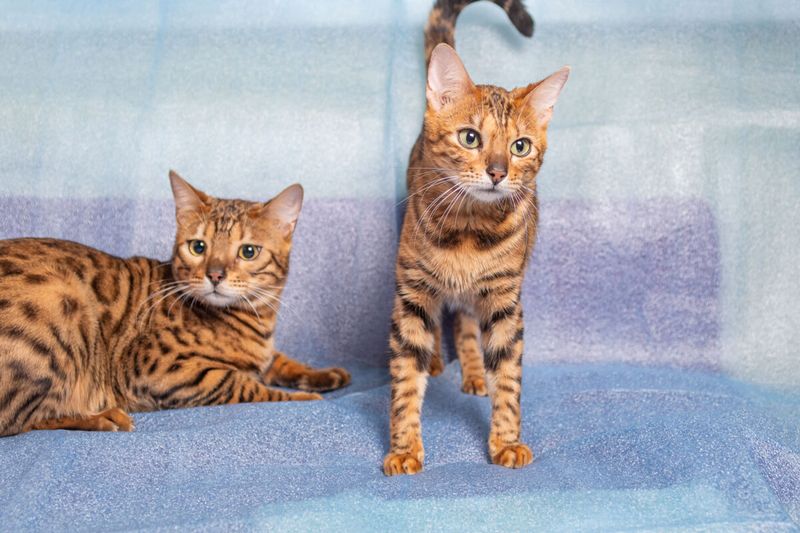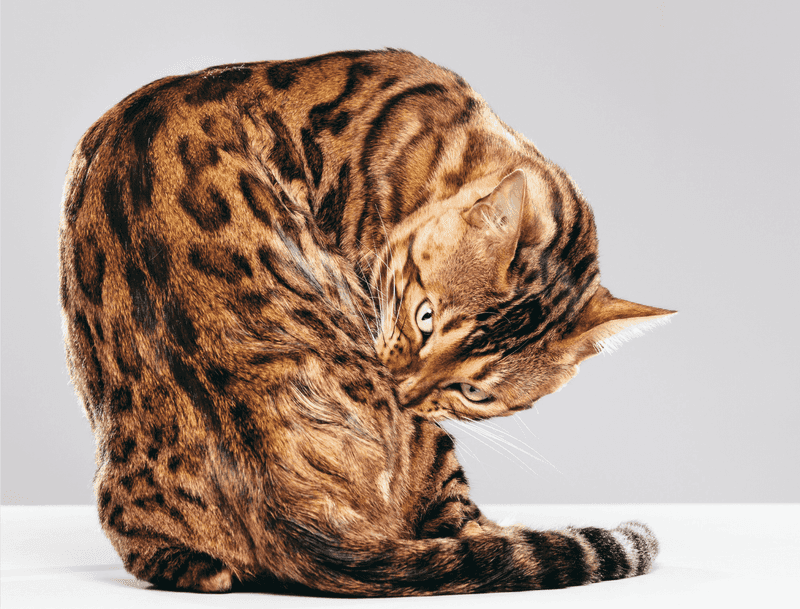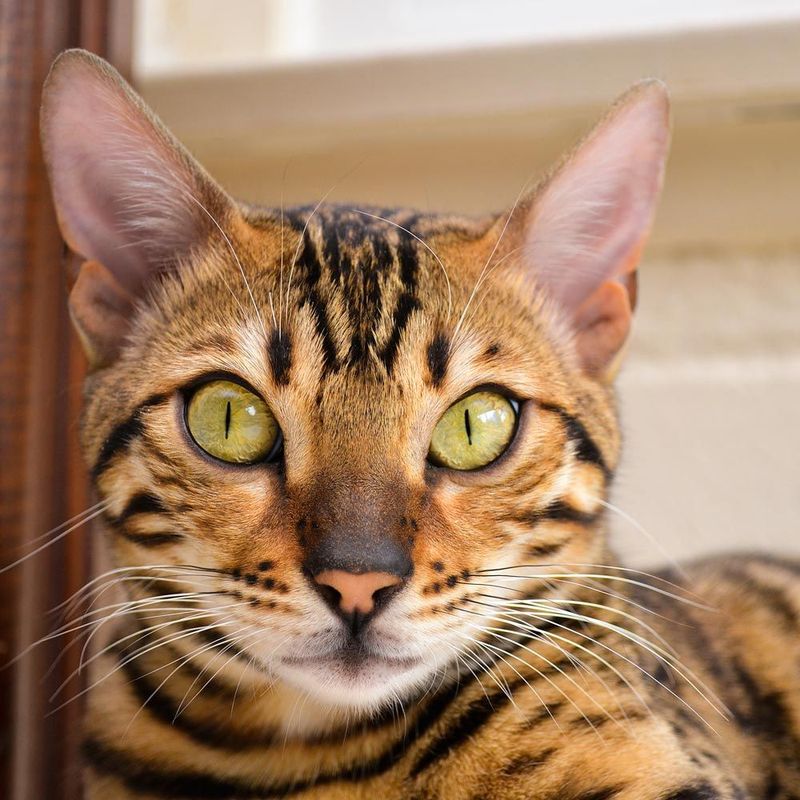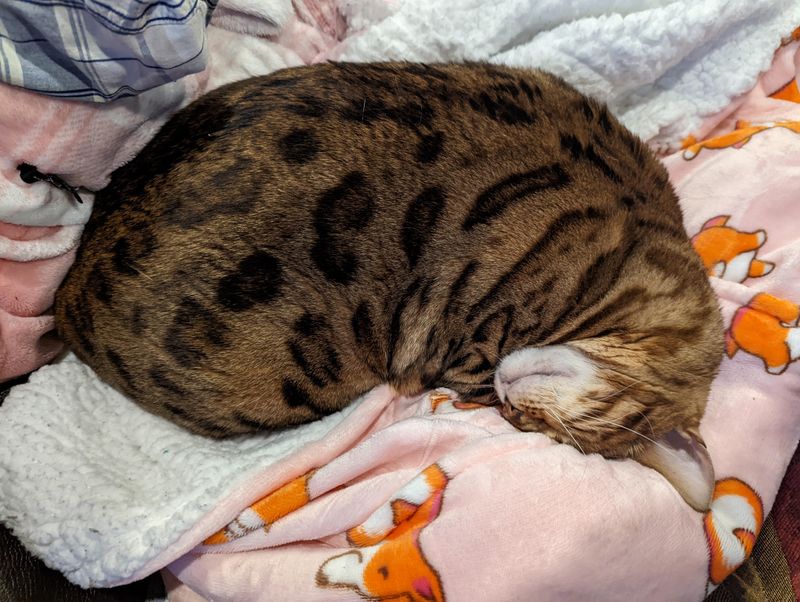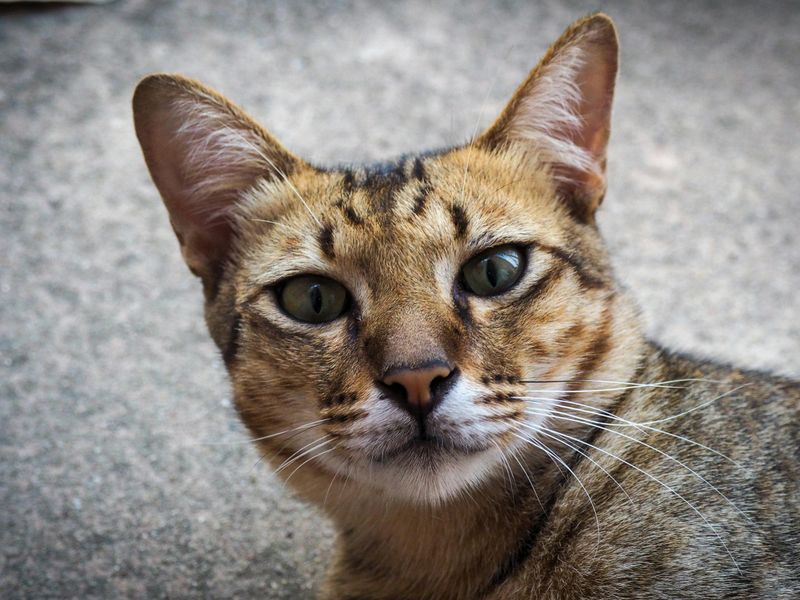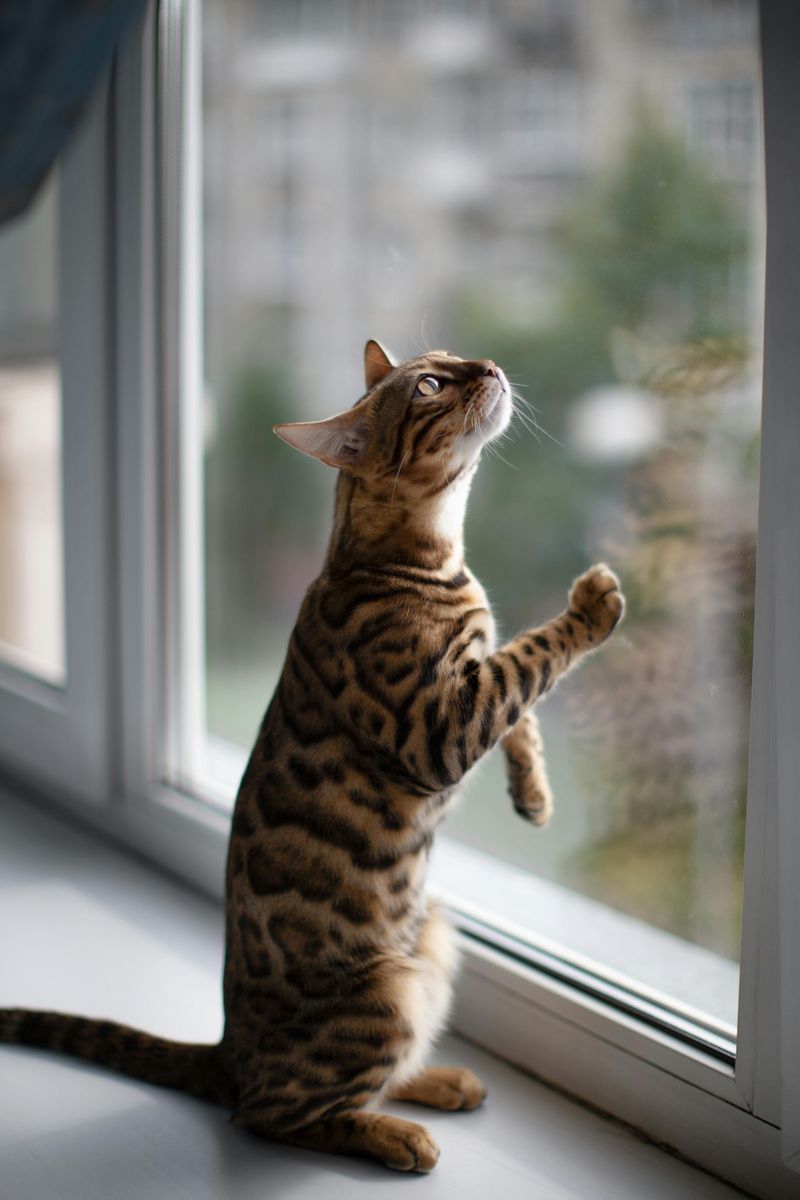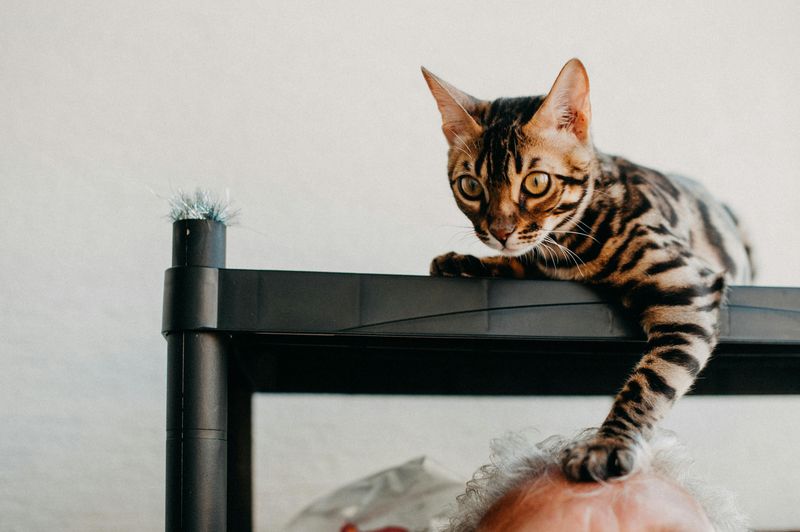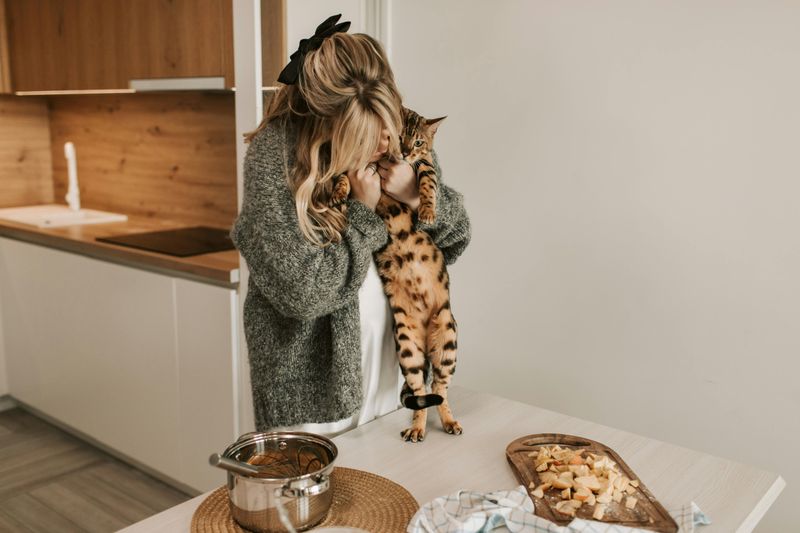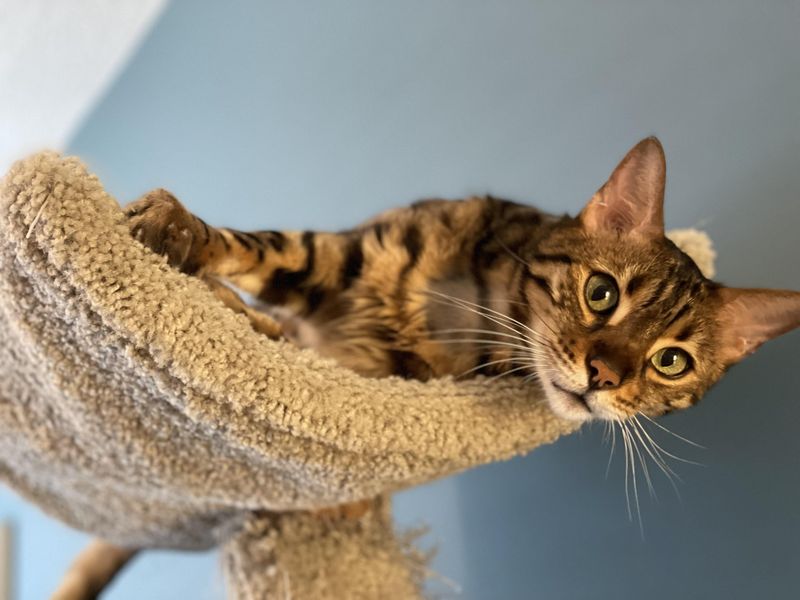📖 Table of Content:
- 1. High Energy Levels
- 2. Intelligent and Curious
- 3. Strong Hunting Instincts
- 4. Vocal and Demanding
- 5. Need for Space
- 6. Social Creatures
- 7. Grooming Needs
- 8. Expensive Breed
- 9. Health Concerns
- 10. Not Ideal for Families with Young Children
- 11. Escape Artists
- 12. Dietary Requirements
- 13. Legal Restrictions
- 14. Time Commitment
- 15. Unique Personality
Bengal cats are undeniably striking, with their wild appearance and vibrant personalities. Their exotic look, combined with their boundless energy, often makes them an appealing choice for many cat lovers. However, their beauty and charisma come with a set of challenges that can be difficult to manage for the unprepared.
These cats are not your typical feline companions. Their high energy levels, intelligence, and strong prey drive mean they require much more than just basic care. A Bengal cat needs an environment that matches its active lifestyle and stimulating personality to keep it content.
Owning a Bengal is a commitment that goes beyond feeding and grooming. They thrive in specific conditions, requiring time, patience, and dedication to meet their complex needs. Before welcoming a Bengal into the home, it’s important to fully understand the unique responsibilities they bring with them.
1. High Energy Levels
Bengal cats are renowned for their boundless energy, requiring significant playtime and interaction to keep them content. Their lively nature can be entertaining but also exhausting for owners unprepared for such vigor.
You’ll find your Bengal exploring every nook and cranny, often getting into places you never imagined. This means you’ll need to cat-proof your home significantly more than for a typical housecat. If you’re seeking a calm and relaxed feline, a Bengal might not be your ideal match, as their high energy levels demand constant engagement and activity.
2. Intelligent and Curious
With their exceptional intelligence, Bengals can both impress and frustrate their owners. Their curiosity tends to push them to investigate everything in their surroundings, and they can even learn to open doors and cabinets. To keep them happy, it’s important to provide plenty of mental challenges.
Without proper outlets for their intelligence, such as interactive toys or training sessions, Bengals might resort to mischief, testing the patience of even seasoned cat owners. Their smart nature is charming but requires dedicated time for mental engagement.
3. Strong Hunting Instincts
Thanks to their ancestry with the Asian leopard cat, Bengals possess a natural hunting drive. While this trait can be impressive to watch, it may pose problems if they decide to target smaller pets. For families with birds, rodents, or fish, integrating a Bengal into the home could prove tricky.
Outdoor exploration should be supervised, as their instinct to hunt can lead them into unsafe situations. Providing plenty of toys that simulate hunting can help curb these instincts while keeping them entertained indoors.
4. Vocal and Demanding
Known for their talkative nature, Bengals often make their presence known with loud meows and chirps. Whether it’s charming or overwhelming depends on how much noise one can tolerate. Their vocalizations go beyond simple requests, as they also communicate their feelings and desires.
However, if you prefer a quiet pet, a Bengal’s constant chatter might not be suitable. Understanding their vocal cues is essential to meet their needs and ensure they feel heard and loved.
5. Need for Space
The agile and active Bengal requires ample space to roam, climb, and explore. A cramped or cluttered environment can lead to frustration and destructive behavior. Investing in cat trees and perches will help provide the necessary vertical space for them to thrive.
If you live in a small apartment, consider whether you can accommodate their spatial needs. Bengals flourish in environments where they have room to express their natural behaviors, making space a critical factor in their happiness.
6. Social Creatures
Bengals are inherently social animals that thrive on interaction with their human companions. They enjoy being part of family activities and dislike prolonged solitude. If you’re often away from home, a Bengal might become lonely and develop behavioral issues as a result.
To keep them happy, consider another pet for companionship or ensure there’s ample human interaction. Their social nature makes them wonderful, engaging pets but also requires a commitment to being present and involved in their daily lives.
7. Grooming Needs
The short, dense coat of a Bengal requires consistent grooming to maintain its shine and reduce shedding. While they don’t need as much care as long-haired cats, failure to groom can result in mats. Regular brushing keeps their coat healthy and is a great way to connect with your feline friend.
Additionally, inspecting their ears and teeth during grooming sessions will help prevent common health issues. Keeping up with their grooming needs is manageable but requires consistency and dedication.
8. Expensive Breed
Owning a Bengal cat can be a costly endeavor. They are one of the more expensive breeds to purchase, often requiring premium prices due to their exotic appearance and lineage.
Beyond the initial purchase, Bengals may incur higher costs for specialized food, veterinary care, and enrichment toys that cater to their active lifestyles. Prospective owners should budget for these expenses and consider whether they can afford the ongoing financial commitment required to keep a Bengal cat healthy and happy.
9. Health Concerns
Bengals are generally healthy but can be prone to certain genetic conditions like hypertrophic cardiomyopathy (HCM) and progressive retinal atrophy (PRA).
Regular veterinary check-ups are essential to catch any health issues early, ensuring a long, happy life for your Bengal. Owners should research the health history of their Bengal’s lineage and be prepared for potential medical expenses. Staying informed and proactive about their health can prevent serious conditions from developing.
10. Not Ideal for Families with Young Children
Affectionate yet full of energy, Bengals may not be the best choice for families with very young children. Their playful behavior can get rough, leading to accidental scratches or bites. Close supervision is necessary to ensure interactions remain safe and gentle.
Educating children on how to handle and respect the cat can help foster a positive relationship. If your household includes young kids, carefully consider whether a Bengal’s temperament is the right fit for your family dynamics.
11. Escape Artists
Known for their intelligence and agility, Bengals have a tendency to escape by figuring out how to open doors and windows. Their love for adventure can turn into a safety concern if left unchecked. To prevent any escapes, make sure your home is cat-proofed and all escape routes are securely shut.
A secure outdoor enclosure can provide them with fresh air and exercise without the danger of them wandering off. Awareness and prevention are key to keeping your adventurous Bengal safely contained at home.
12. Dietary Requirements
To support their muscular builds, Bengals need a protein-rich, high-quality diet. Low-quality cat foods filled with fillers won’t give them the nutrition they require.
Consulting with a veterinarian can help tailor a diet that suits their needs, ensuring they receive vitamins and nutrients essential for their health. Investing in premium cat food can be costly, yet it’s crucial for their well-being. Understanding and meeting their dietary requirements is an important aspect of responsible Bengal cat ownership.
13. Legal Restrictions
In some areas, owning a Bengal cat is restricted or requires special permits due to their exotic lineage. Prospective owners must research local laws and regulations before acquiring one. Compliance with these regulations is necessary to avoid legal issues and ensure the cat’s welfare.
If you’re considering a Bengal, ensure you understand and adhere to any legal requirements. This can include permits or restrictions related to their ownership, which vary by location.
14. Time Commitment
Owning a Bengal means dedicating time to their physical and mental well-being. They need daily play, mental stimulation, and companionship to remain content. Neglecting these needs may result in behavioral problems or anxiety.
You should evaluate your ability to dedicate time to a Bengal’s care, balancing work, family, and other commitments. A Bengal thrives in a home where they are an integral part of the family, with devoted attention and interaction.
15. Unique Personality
Every Bengal cat has its own distinctive personality, often characterized by their quirky and sometimes unpredictable behaviors. Understanding and embracing this individuality is crucial for a harmonious relationship.
Some Bengals may be more aloof, while others are affectionate lap cats. Owners must be adaptable and patient, allowing their Bengal’s personality to shine. This uniqueness is part of their charm but requires an open mind and willingness to navigate their eccentricities.
